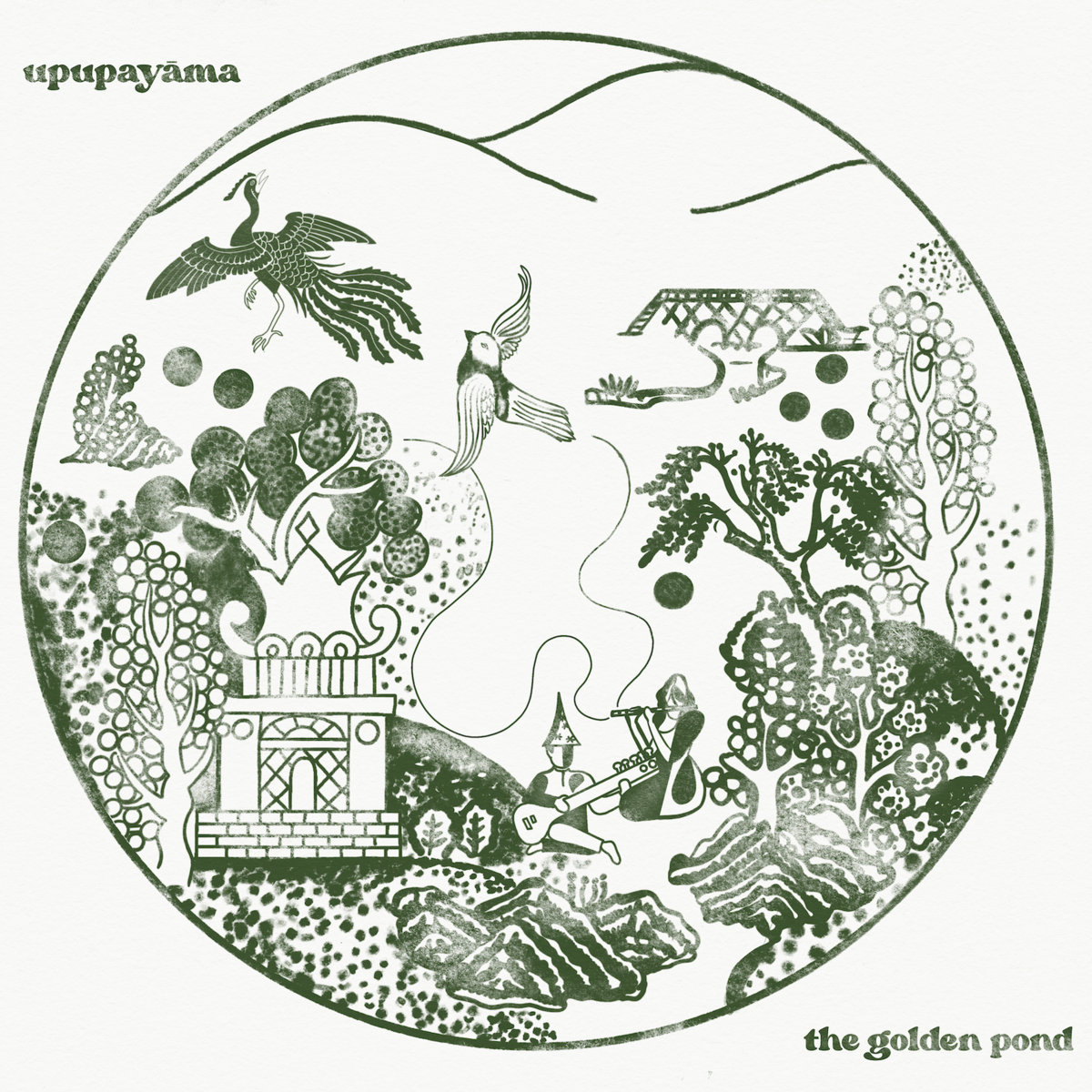UPUPAYĀMA, The Golden Pond

Impossibile non riscontrare, nelle iniziali meditazioni ondivaghe e orientaleggianti di Alessio Ferrari, in arte Upupayāma, la lezione dello psych-rock giapponese dell’ultimo decennio, da Minami Deutsch e Satomimagae fino a Kikagaku Moyo e Dhidalah e in generale tutto il giro Guruguru Brain. Non a caso, l’esordio omonimo di Ferrari, che aveva ottenuto il benestare della critica italiana, era stato registrato da Yui Kimijima (Gaji, Thermo, Umbilico, Eppure…) proprio in quello Tsubame Studio di Tokyo in cui la band di Tomo Katsurada e Go Kurosawa aveva inciso dischi importanti per la sua storia come Forest Of The Lost Children, House In The Tall Grass e l’ultimo Kumoyo Island.
Nell’anno in cui i Kikagaku Moyo annunciano la fine del loro progetto, Cardinal Fuzz propone The Golden Pond, il secondo disco a firma Upupayāma, che restituisce le stesse impressioni del suo predecessore, ma questa volta con una psichedelia più a fuoco e meno dispersiva. Folk gentile, flautini e voci angeliche degli spiriti dei boschi, alternati a martellate heavy-psych e motorik zen: Upupayāma ricalca in maniera pedissequa le intuizioni dei Kikagaku Moyo, con una scrittura migliorata. Un’uscita da ascoltare con molto piacere, ma non proprio una novità.
